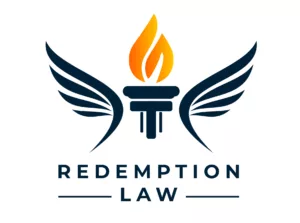Surviving a brain injury can dramatically alter your life. The physical, cognitive, and emotional consequences can be severe and long-lasting, and the financial strain from medical bills, rehabilitation costs, and lost earnings can be overwhelming.
While every brain injury case is unique, the law provides remedies for those who suffered such injuries due to another’s negligence. A skilled brain injury lawyer can navigate this complicated pathway, advocate for you to obtain compensation, and address the legal intricacies of this sensitive matter.
Schedule a Free Initial Consultation Today!
Understanding Brain Injuries
Brain injuries are a distressingly common occurrence, often resulting from accidents, falls, or other traumatic events. Each case is unique and has many repercussions that can drastically alter the course of someone’s life. Consequences can range from physical symptoms to substantial alterations in cognition, emotions, and behavior.
We use the term brain injury in these scenarios in the context of personal injury law. While we’ll discuss the general implications of a brain injury, we won’t delve into specific medical details. Instead, we’ll explore the impacts a brain injury might have on your life from a legal vantage point.
Brain injuries often result in life-altering conditions that require prolonged medical treatment, rehabilitation, and support, entailing significant financial burdens. They can also lead to loss of earnings due to decreased work capacity or the inability to continue former employment. These are all facets your lawyer will vigorously review when building a robust legal case for your specific circumstances.
Understanding the legal significance of brain injuries helps to contextualize how personal injury law applies to such situations. A lawyer can fight for those with a brain injury and secure the legal remedies they are entitled to, which can play a crucial role in their path to recovery.
Types and Causes of Brain Injuries
Brain injuries commonly occur due to falls, vehicle-related accidents, violence, sports accidents, explosive blasts, or other combat injuries. The specific brain injury and its cause can determine the appropriate legal approach and compensation claim.
The Impact of Brain Injuries on Quality of Life
Brain injuries can cause multiple physical and cognitive impairments and significantly affect your quality of life.
Physical symptoms can include persistent headaches, seizures, dizziness, and motor coordination issues.
Cognitive and emotional impacts can include memory and concentration issues, mood swings, or depression. These changes can affect your ability to work, impair social interactions, and hinder everyday activities. They, therefore, merit a higher compensation claim.
The Role of Medical Experts in Brain Injury Cases
In brain injury cases, medical experts play a central role by providing professional testimony about the extent of the injury, its impacts, and future medical needs. An expert’s opinion can be instrumental in establishing the severity and long-term consequences of the injury and can influence the final compensation amount.
Understanding Liability in Brain Injury Cases
To win a personal injury case, you must prove the elements of negligence. Demonstrating these elements requires a deep understanding of personal injury law and the specifics of the incident that led to the injury.
Negligence refers to a failure to exercise the care that a reasonably prudent person would demonstrate in a given situation.
To prove negligence, you must establish:
- Duty: The defendant owed a duty of care to you. This means that the defendant had a responsibility to act in a way that would not cause you harm.
- Breach of duty: The defendant breached the duty of care by failing to exercise the care that a reasonably prudent person would demonstrate in a given situation. This means that the defendant did something that a reasonably prudent person would not have done or failed to do something that a reasonably prudent person would have done.
- Causation: The defendant’s breach of duty caused your brain injury. This means that your brain injury would not have occurred if the defendant had not breached their duty of care.
- Damages: You suffered actual damages due to the defendant’s negligence. This means you suffered some loss, such as medical bills, lost earnings, or pain and suffering.
If you can prove all four elements of negligence, you may recover damages from the defendant for your brain injury. Your lawyer fights on your behalf to prove each element of negligence and show that the defendant is financially liable for your injury.
The Role of a Personal Injury Lawyer in Brain Injury Cases
A personal injury lawyer can play an essential role in your brain injury case. This individual becomes your advocate, guiding you through the intricacies of the legal system and taking on critical responsibilities on your behalf.
When you partner with a personal injury lawyer, they collect and present the evidence for your case. This involves gathering medical records, speaking with medical experts, and meticulously documenting how your brain injury has affected you and will continue to affect you. All these steps are critical in establishing the connection between the injury and the incident that caused it and demonstrating the magnitude of the damage you suffered.
A significant part of your lawyer’s job involves negotiating with insurance companies and other parties involved in the case. These challenging and emotionally draining negotiations require a deep understanding of the law and substantial experience.
Should your case proceed to court, your lawyer shoulders the responsibility of representing you during the trial. This includes constructing compelling arguments, examining witnesses, and making legal submissions. Courts can be intimidating places, even under less stressful circumstances. Having a skilled representative who understands the process and who is dedicated to protecting your interests can be a game-changer in achieving a favorable outcome.
The role of your personal injury lawyer is multifaceted: They will handle the early stages of evidence collection, conduct negotiations, and represent you in court proceedings if required. This professional assistance can make a profound difference in navigating the legal complexities that arise in brain injury lawsuits.
Potential Compensation in Brain Injury Cases
After a brain injury, your lawyer can explain the types of compensation you may deserve. While we won’t delve into exact dollar amounts due to the variability inherent in each unique situation, we can provide a broad understanding of the categories the law has defined for potential recovery.
At its core, the legal framework seeks to compensate those who have suffered injuries for their losses.
This could include:
The amount of compensation you will receive in a brain injury case will depend on various factors, such as the severity of the injury, the proof of liability, the quantifiable financial losses, and the impact on your quality of life.
Your personal injury lawyer can analyze your case, research similar cases, and form a solid strategy to obtain the maximum compensation possible. The law provides several avenues for compensation following a brain injury. Your personal injury lawyer will research these options and pursue those in your best interest.
The Process of a Personal Injury Lawsuit
To demystify the process of filing a brain injury lawsuit, we’ll provide a general outline of what a typical timeline might look like. The specifics can vary significantly depending on the unique circumstances of each case.
Initially, your lawyer will undertake a thorough assessment of your situation. This involves understanding the full extent of your brain injury, its implications on your life, and the circumstances of the incident. They will gather the necessary evidence.
Next comes the filing of the lawsuit. Your lawyer will register the legal claim against the party responsible for the injury. Following this, there’s a period known as discovery during which both sides can investigate the claims and defenses of the other party.
Both parties might try to negotiate a settlement to resolve the case. If a settlement is not possible, the case will proceed to trial. Your lawyer will represent you, present the evidence, cross-examine witnesses, and advocate on your behalf.
Working With Insurance Companies
Insurance companies often seek to minimize payouts. You need a lawyer who understands how to negotiate effectively with them, present a strong case with compelling evidence, and refuse an unfair settlement.
Preparing for a Personal Injury Trial
Should your case proceed to trial, adequate preparation is crucial. The steps involved include evidence collection, discovery, pre-trial motions, jury selection, and preparation of legal arguments. Each requires careful attention to detail and extensive knowledge of the legal system.
This is a simplified overview of the process; the actual stages and timeline of a personal injury lawsuit is much more complicated. Each stage involves detailed procedures that require experience and proficiency in the law, reinforcing the essential role of your lawyer in navigating this intricate process on your behalf.
Understanding the general flow of a personal injury lawsuit can allow you to anticipate the stages you may encounter. Yet, we cannot overstate the importance of your lawyer’s knowledge and guidance in this journey, as they will adapt their strategy to accommodate the distinctive aspects of your case and work earnestly for a successful resolution.
Post-Trial Procedures and Appeals
After the trial, you may need to enforce the judgment, especially if the defendant refuses to pay. Alternatively, if the court decides against you, you might appeal. Understanding the post-trial procedures and potential next steps can help you manage expectations and plan your next course of action.
Let a Skilled Lawyer Advocate for You After Suffering a Brain Injury

Countless factors influence the outcome of every brain injury case, so hire a skilled personal injury lawyer who can provide specific advice and strategies tailored to your circumstances.
A personal injury lawyer offers more than just legal representation; they provide a guiding hand, necessary support, and in-depth knowledge during a challenging period in your life. By advocating for your rights, working tirelessly to gather and present compelling evidence, and challenging any disputes, your lawyer can be the strongest ally in your pursuit of justice.
It is our deepest wish that you never find yourself in a position where you require this information. Should you need it, however, know that there are legal professionals ready and capable of assisting you every step of the way and who will diligently work to secure you a path toward recovery.
You don’t have to shoulder the burden of protecting your rights and advocating for your interests alone. A personal injury lawyer is just a call away.
Related articles
Related articles Related articles Related articles Related articles Related articles Related articles Related articles Related articles Related articles Related articles




